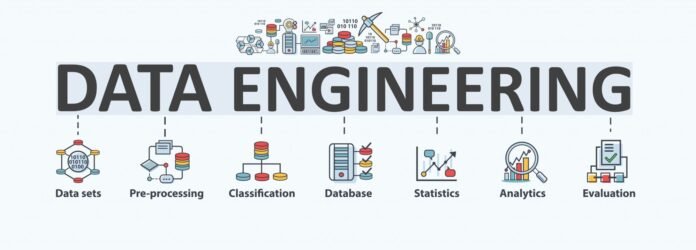Introduction
Data engineering is a dynamic and rapidly evolving field that plays a critical role in enabling data-driven decision-making. As data continues to grow in volume, variety, and velocity, data engineers must stay ahead by mastering advanced topics and technologies. To help data engineers navigate this complex landscape, learn about some of the most significant advanced data engineering topics currently shaping the industry. Explore the Best Data Engineering Courses that can provide the knowledge and skills necessary to excel in these areas.
1. Data Lakehouse Architecture
The data lakehouse architecture combines the features of data lakes and data warehouses, offering a unified approach to storing and managing large volumes of data. It supports both structured and unstructured data, enabling faster analytics and reporting.
Key Features:
- Unified Storage: Merges data lake and warehouse functionalities.
- Scalability: Supports massive data volumes with ease.
- Cost-Efficiency: Reduces the need for multiple storage systems.
Benefits:
- Simplified Data Management: Streamlines data processing and analytics.
- Improved Performance: Facilitates faster query processing and reporting.
Data Lakehouses and Traditional Data Warehouses
| Feature | Data Lakehouse | Traditional Data Warehouse |
| Storage Type | Unified | Separate |
| Data Types | Structured & Unstructured | Structured Only |
| Scalability | High | Limited |
| Cost Efficiency | High | Moderate to High |
2. Real-Time Data Processing
Real-time data processing involves handling data as it is generated, allowing organizations to make timely decisions based on the latest information. This is crucial for applications like fraud detection, IoT monitoring, and live analytics.
Key Technologies:
- Apache Kafka: Streaming platform distributed for real-time data feeds.
- Apache Flink: A framework for stream processing with high throughput and low latency.
Benefits:
- Immediate Insights: Provides up-to-date information for decision-making.
- Enhanced Responsiveness: Enables real-time alerts and actions.
Real-Time Processing Tools
| Tool | Latency | Throughput | Fault Tolerance |
| Apache Kafka | Low | High | High |
| Apache Flink | Very Low | Very High | Very High |
| Apache Storm | Low | High | Moderate |
3. Data Quality Management
Maintaining data quality is vital for accurate analytics and business intelligence. Data quality management involves processes and tools to ensure data accuracy, completeness, consistency, and reliability.
Key Techniques:
- Data Profiling: Understand data structure and quality for analysis.
- Data Cleansing: Correcting or removing inaccurate data structure and quality.
Benefits:
- Increased Accuracy: Ensures reliable data for decision-making.
- Operational Efficiency: Reduces the risk of errors and inconsistencies.
Common Data Quality Dimensions
| Dimension | Description | Example |
| Accuracy | Data correctly represents the real-world value. | Correct customer details |
| Completeness | All required data is present. | Complete transaction records |
| Consistency | Data is consistent across different sources. | Matching entries in CRM and ERP |
| Reliability | Data is consistently accurate over time. | Consistent sales reporting |
4. Data Governance and Security
Data governance involves the management of data availability, usability, integrity, and security. It is essential for ensuring compliance with regulations and protecting sensitive information.
Key Components:
- Data Policies: Guidelines for data management and access.
- Data Security: Measures to protect data from breaches and unauthorized access.
Benefits:
- Regulatory Compliance: Ensures adherence to legal and industry standards.
- Enhanced Data Protection: Safeguards against data breaches and leaks.
Key Aspects of Data Governance
| Aspect | Description |
| Data Policies | Rules for data handling and access |
| Data Stewardship | Oversight and management of data resources |
| Compliance Monitoring | Ensuring adherence to regulations |
Courses and Certifications
To excel in advanced data engineering topics, pursuing relevant courses and certifications is essential. The Best Data Engineering Courses offer comprehensive training in advanced topics such as data lakehouse architecture, real-time data processing, and data quality management. These educational programs are designed to equip professionals with the practical skills and theoretical knowledge required for effective data management and analytics.
By grabbing, you can stay current with industry standards, master emerging technologies, and improve your problem-solving capabilities in complex data environments. Investing in quality education is essential for advancing skills and achieving excellence in the field of data engineering. Certifications For Data Engineer from a reputable organization validate expertise and can enhance career prospects.
They cover key areas like data processing, storage, and security, helping professionals enhance their skills and advance their careers in data engineering. Certifications For Data Engineer, such as Google Cloud Professional Data Engineer and Microsoft Certified: Azure Data Engineer Associate, validate expertise in designing and managing data solutions.
Conclusion
Advanced data engineering encompasses a wide range of topics, from cutting-edge architectures to real-time processing and robust data governance. By staying informed and pursuing the best courses and certifications, data engineers can ensure they are equipped to tackle complex challenges and drive their organizations forward.
